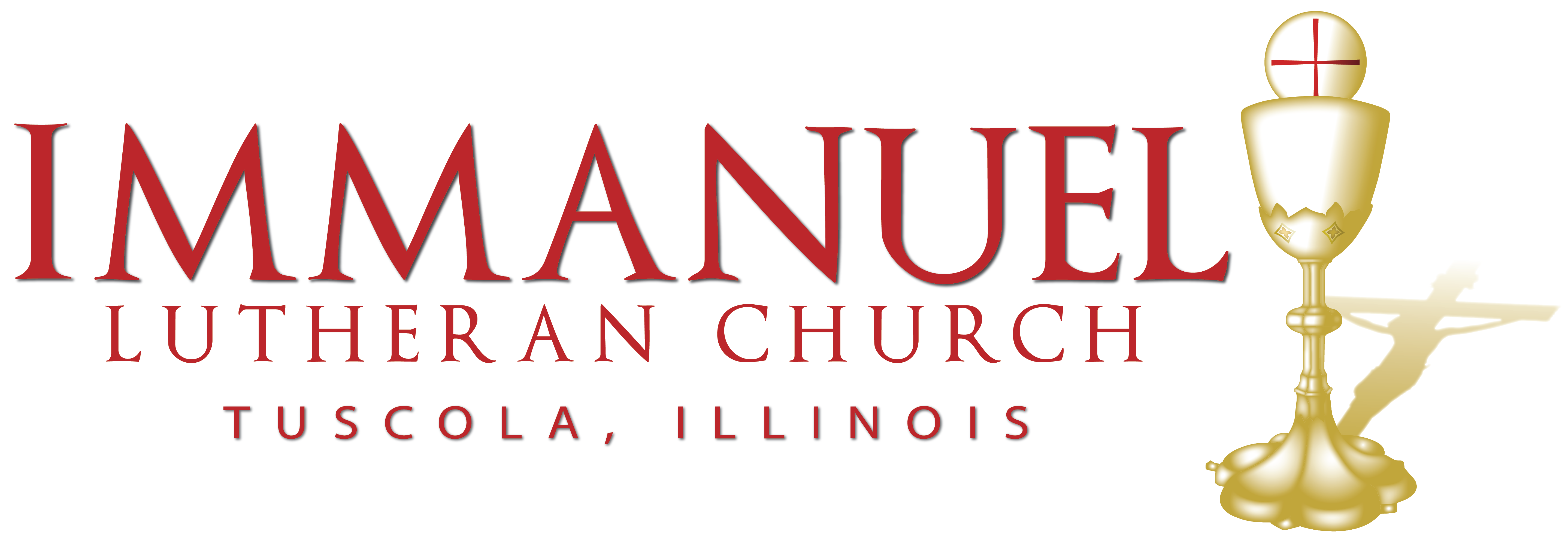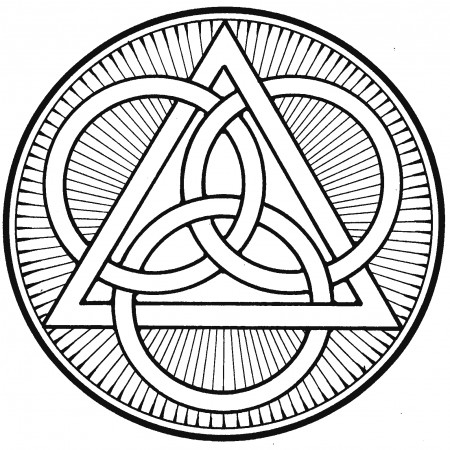The Feast of the Most Holy Trinity
John 3:1–17
+ IN NOMINE IESU +
Christian teaching, just like the Bible itself, is simple enough for a child to understand, but profound enough to baffle the wisest theologian. Trinity Sunday exists today because a few of the Church’s wisest theologians were baffled with regard to God’s essence and fell into heresy in their teaching. This forced the Church’s bishops to develop the orthodox doctrine of the Trinity and write our creeds. Yet, from the beginning of the Christian Church, babies were baptized in the name of the Father, Son, and Holy Spirit, and laity believed in God as such. There is no doctrine so clear as to be immune from the attacks of Satan and this world. It should not surprise us that God’s identity is attacked, but it should also not surprise us that the truth shines forth even brighter after the Church defends against such attacks.
The discussion between Nicodemus and Jesus seems, on the surface, to be a strange text for Trinity Sunday. There are passages in the Gospels that mention explicitly the three persons of the Trinity like at Jesus’ Baptism, or Jesus’ Words in Matthew 28, John 14, or John 16. But in fact, the mystery of the Trinity and the mystery of the kingdom of God are similar in that they must be received in faith. Human reason will always be stumped by these two doctrines. “How can God be three distinct persons in one undivided unity?” “How can a man be born when He is old?” “How can a sinner be saved?” In order to be saved you must “worship one God in Trinity and Trinity in Unity” and “believe the incarnation of our Lord Jesus Christ.” In order to see the kingdom of God, you must be born again, become something altogether new.
Nicodemus personifies of our own personal struggle with God and our own salvation. In our sinful flesh, we are constantly engaged in an internal battle. Having been converted by the Holy Spirit, we have been given faith to believe all that God teaches us in the Holy Scriptures, but our sinful human reason experiences the world differently. We see the pain and suffering that is in our life and we’re tempted to think that either God doesn’t care about us, or that He can’t really help us or doesn’t want to. We experience our own weaknesses in the face of temptation, we know that we are selfish and self-centered. We know that we put ourselves above others, don’t pray as often or as heartily as we ought. So we Nicodemuses come to Jesus furtively in the cover of darkness to question Him. That way, if He fails us, we can sneak off again by ourselves and not be embarrassed in front of our friends or family. We come to Jesus with our questions and our lists of problems.
But before we get a chance to ask the first one, Jesus fires off a creedal statement: “Truly, truly, I say to you, (there are three such statements in this Gospel text, alone, each building on the last) unless you are born again you cannot see the kingdom of God.” Jesus gets right down to the point. He sees through the fog of Nicodemus’s unbelief. It’s as if Jesus says, “Nicodemus, I know you are scared of many things. You’re scared that I’m either a fraud or really the Messiah; you’re scared of what your religious peers would say if they saw you talking with me; you’re scared for your salvation and the salvation of your family.” Jesus does not want to leave Nicodemus in his fear. He wants to bring him into the light of the truth. His life has been held captive in the darkness of a misunderstanding of the Scriptures.
It is impossible for human reason ever to comprehend the fact that salvation cannot be achieved by keeping the Law. It is part of the nature with which we were born, that we all desperately want God to consider us relatively good people who have done many good things. The moment God denies us this praise, and shows us our sin, our flesh balks and complains that God is too harsh and is not fair, many even fall away not wanting a God like that. But Jesus says, whoever is not reborn, will never see the kingdom of God. The whole person must become something new and different. The flesh must be killed and the Spirit must give life. A tree must become a good tree before it can produce good fruit; therefore, man must first become truly good and holy before he is capable of having faith and doing anything that is good. The focus of Jesus upon being born of water and the Spirit is no accident. Baptism is the rebirth of a person into something different. It is as passive as your physical birth from your mother. You did not participate in your human birth. It happened to you. So also, your spiritual birth in water and the Spirit is a passive act, done for you by God—Father, Son, and Holy Spirit. That’s what Jesus is trying to tell Nicodemus.
And here we now see how this text relates to Trinity Sunday. Salvation is wrought by Father, Son, and Holy Spirit. God’s works are indivisible just as His essence is. The most holy Trinity works as one for the salvation of mankind. He does this by loving the world. How does God love the world? He loves the world in this way, that the Father sent His Son so that whoever believes in the Son by the call of the Holy Spirit through the proclamation of the Son’s death and resurrection will not perish but have eternal life. God—Father, Son, and Spirit—has accomplished your salvation, just as God—Father, Son, and Spirit—accomplished the creation of all things. The Father sent the Son so that whoever believes in the Son by the work of the Holy Spirit, who calls us by the Gospel, enlightens us with His gifts, and sanctifies us in this faith, will not perish but have eternal life. We were created, given life by the holy Trinity: the Father speaking His Word which carries His Spirit so that what was spoken came to be. So also, we have new life from the same. The Father sends the Son, and all who trust in that Son by the Spirit’s power will live a new life, a life born again, born from above, born of water and the Spirit.
This is the catholic, that is universal Christian, faith. We worship the Unity in Trinity and the Trinity in unity, who works out our salvation which comes to us from the Father, through the Son by means of the Holy Spirit. Amen.



0 Comments